How do introverts make friends
How To Make Friends As An Introvert: The Ultimate Guide
Do you find yourself feeling uncomfortable in social situations? Do you often feel like you’re the only one who doesn’t know what to say? If so, then you are probably an introvert.
Introverts comprise a third of the population, and many have difficulty making friends.
If you’re an introvert, don’t worry! This guide is here to help.
We will discuss some tips that will help you make friends as an introvert and keep them. Read on!
Why Is Friendship Important?
Before we learn how to make friends, let’s discuss why friendship is important.
Friendship is a two-way relationship in which both parties share their thoughts, feelings, and experiences. It’s a mutual give-and-take relationship that helps us feel connected to others.
Friendships make our lives more meaningful and enjoyable. They give us a sense of belonging, support, and self-worth. They also provide us with a social life and help us learn and grow.
Friendships are vital for our mental and emotional health and are a key element of happiness. Studies show that people with strong social relationships are happier, healthier, and live longer. So if you want to improve your overall well-being, making friends should be one of your top priorities.
Who Is An Introvert?
An introvert is someone who prefers quieter, more intimate social situations. They are often seen as shy and may have difficulty talking to new people. Their shy nature doesn’t reflect their ability to be friends, however. In fact, introverts are often great friends!
One of the most common misconceptions about introverts is that they don’t like people or social interaction and have poor social skills. This couldn’t be further from the truth! Introverts just prefer to interact with people one-on-one or in small groups. They find large crowds and parties to be mentally draining and often prefer to stay home instead.
Another misconception about introverts is that they are always shy.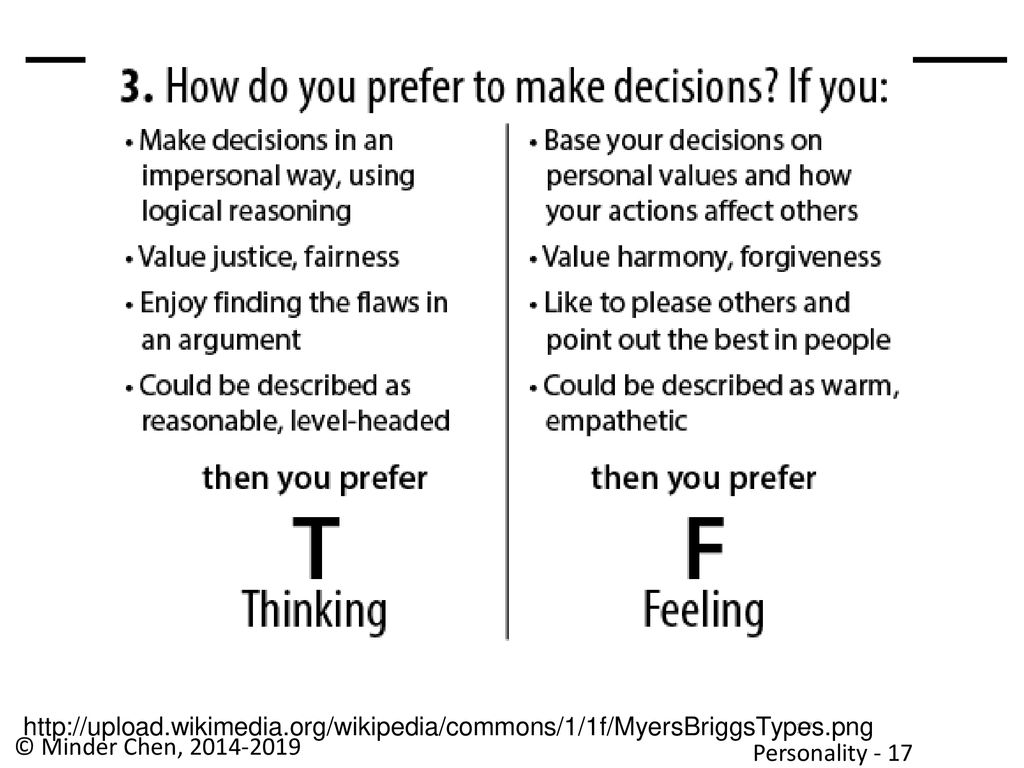 Again, this is not the case. Introverts can be shy in some situations but not in others. For example, introverts might be shy around new people but not around their close friends. It’s important to remember that everyone has different comfort levels and that introverts are no exception.
Again, this is not the case. Introverts can be shy in some situations but not in others. For example, introverts might be shy around new people but not around their close friends. It’s important to remember that everyone has different comfort levels and that introverts are no exception.
Introverts can be very outgoing and expressive once they get to know someone. They are creative and thoughtful people with much to offer in friendships.
So, if you’re an introvert, don’t despair! You can have more friends. You just might have to put in a little extra effort to make them.
Why Is It Difficult For Introverts To Make Friends?
One of the main reasons that introverts have a hard time making friends is that they are often seen as shy. People may not approach them because they seem uninterested or aloof.
Introverts themselves may feel uncomfortable approaching a random stranger. They may feel awkward or out of place in large groups. They may also find small talk to be difficult or uncomfortable.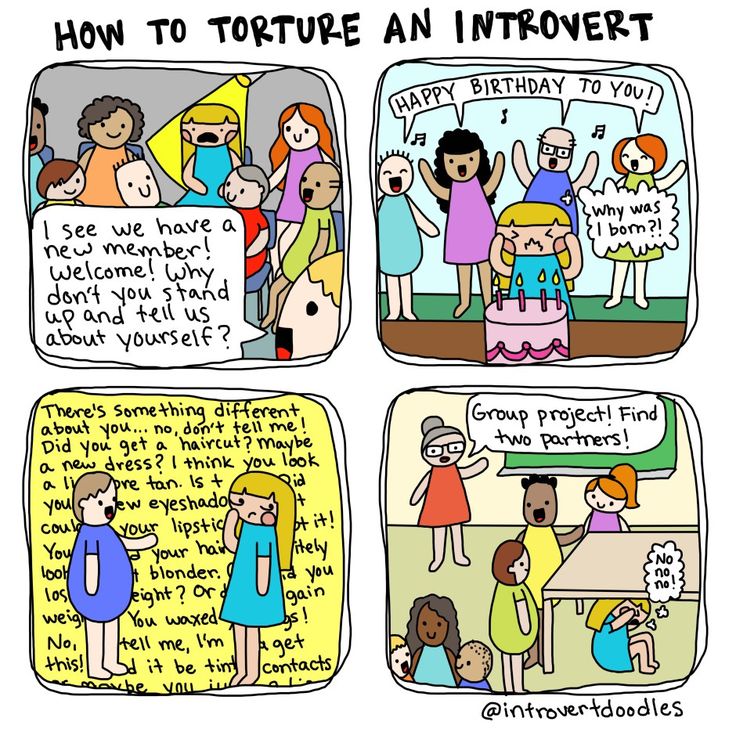
Additionally, introverts require alone time to rejuvenate their social energy and may be less interested in attending social events. This can make it challenging to meet new people and make friends.
How Do Introverts Make Friends?
Introverts prefer deeper, more meaningful friendships. They may have a small group of friends, but they are usually very close to those friends.
Many introverts find that they make friends easily when they are involved in a shared activity or interest. This can be anything from a sport to a hobby or club. They prefer to get to know someone slowly and gradually without the pressure of making small talk.
It can also be helpful for introverts to find friends who are introverted like them. This can help them feel more comfortable and allow them to connect on a deeper level. Introverts can easily spend hours at a coffee shop talking with their like-minded friends about their shared interests.
Online friendships can be a great way for introverts to connect with others. Social media, forums, and other online spaces can provide them with a safe and comfortable environment to meet new people and form relationships without the pressure of in-person interaction.
Social media, forums, and other online spaces can provide them with a safe and comfortable environment to meet new people and form relationships without the pressure of in-person interaction.
How To Make Friends As An Introvert
Making friends as an introvert can be challenging, but it is possible! Here are some tips to help you out:
Work On Your Body Language
Your body language can make a big difference in how people perceive you. If you want to appear more approachable, work on developing the appropriate body language that sends this message. Make eye contact, smile, stand up straight, and avoid crossing your arms.
If someone approaches you, make them feel welcome and comfortable. Show them you are interested in what they’re saying and ask open-ended questions to keep the conversation going.
Have Conversation Topics Ready
Having conversation topics prepared can help you feel more confident in social situations.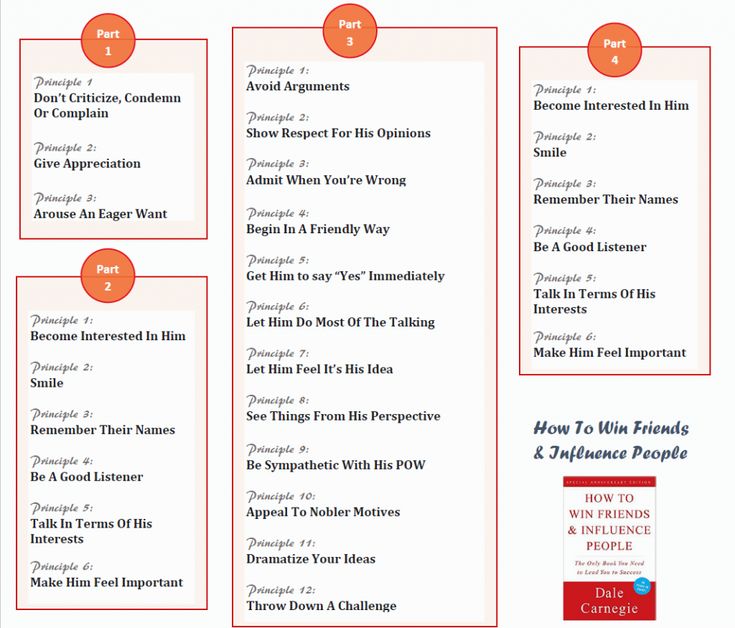 Think about a few issues you are comfortable discussing so that you have something to say if you find yourself in an awkward situation.
Think about a few issues you are comfortable discussing so that you have something to say if you find yourself in an awkward situation.
Also, prepare a bit beforehand by reviewing the latest news and topics of interest. That way, you can have something interesting to contribute to any conversation.
Get Out Of Your Comfort Zone
Try new things to meet new people. Purposely put yourself in social situations, and don’t be afraid to talk to people you don’t know. The more you do it, the easier it will become.
Try making the first move! Other people may feel as shy and self-conscious as you are, so take the initiative and start a conversation. Develop the self-confidence that you have something to offer others, and they will be interested in getting to know you.
If you need a boost of confidence, try repeating affirmations for confidence. Remember that everyone is trying to make friends just like you.
Join A Club Or Group That Interests You
Look for clubs or groups related to your hobbies or interests, such as a book club or photography society, to meet like-minded people with common interests.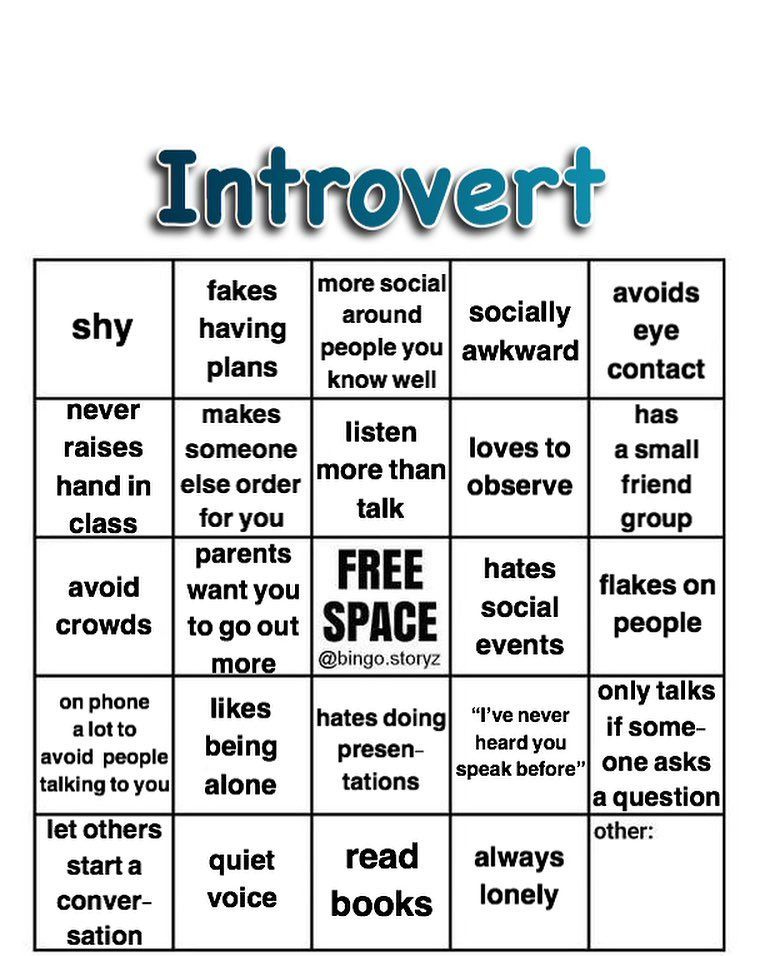 Group activities can be less intimidating than one-on-one interactions and help you gradually get to know people in a more structured setting. When there’s a new person in the group, be the first to say hello.
Group activities can be less intimidating than one-on-one interactions and help you gradually get to know people in a more structured setting. When there’s a new person in the group, be the first to say hello.
Talk To People You Meet In Everyday Situations
Potential friends are everywhere. You never know who you might meet and click with. So, talk to people you meet in everyday situations, such as at work or school. You might be surprised at how easy it is to make new friendships this way. And even if you don’t make a new friend, you’ll build the experience and confidence to keep trying.
Volunteer
Volunteering is a great way to meet new people and make friends while doing something good for your community. When you experience a shared sense of purpose with other volunteers, it’s easier to get to know each other and foster meaningful relationships.
Befriend A Family Member Or Neighbor
You don’t have to look far for potential friends.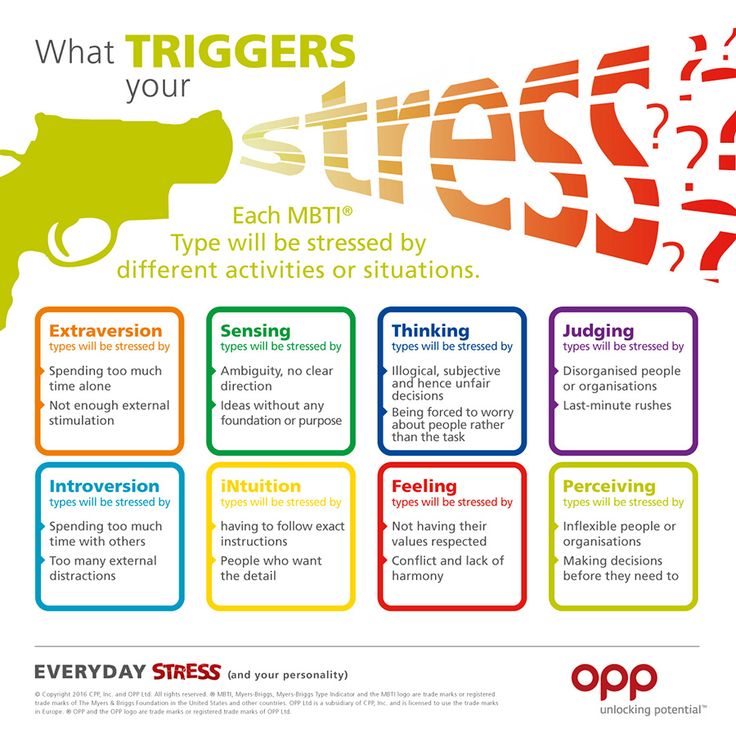 Befriending a family member or neighbor can be an easy way to grow your network. This can be especially true if they share common interests or hobbies. Plus, staying in touch with them can be easier since you already have a connection and history.
Befriending a family member or neighbor can be an easy way to grow your network. This can be especially true if they share common interests or hobbies. Plus, staying in touch with them can be easier since you already have a connection and history.
Ask For Introductions From Friends
If you already have a few friends, it can be helpful to ask them for introductions. They know you well and may know people who would make great additions to your circle of friends.
Reach Out To Former Friends
If you’ve lost touch with a former friend, reach out to them! It can feel intimidating, but most people welcome the opportunity to reconnect with an old friend and would be happy to hear from you.
Create An Online Presence
An online presence can be a great way to make friends as an introvert. You can create a profile on social media, join an online forum, or start a blog. When you share your ideas and opinions online, you can reach a larger audience and attract people with similar interests. Plus, it’s a great way to practice your communication skills.
Plus, it’s a great way to practice your communication skills.
Be Patient
Making friends takes time. So be patient and don’t give up if you don’t make new friends immediately. Don’t drain yourself too fast; otherwise, you’ll likely end up feeling overwhelmed and may want to give up.
Remember to take time for yourself to recharge so that you’re energized for your next outing.
How To Keep Friendships As An Introvert
Introverts may have difficulty maintaining friendships because they require alone time to rejuvenate.
Try to balance your need for alone time and spending quality time with friends.
Here are our tips to help you keep your friendships:
Be Yourself
The most important thing is to be yourself. Don’t try to be someone you’re not. People will like you for who you are. So relax and be yourself! When you’re not, your true colors won’t shine, and you won’t be able to make meaningful connections.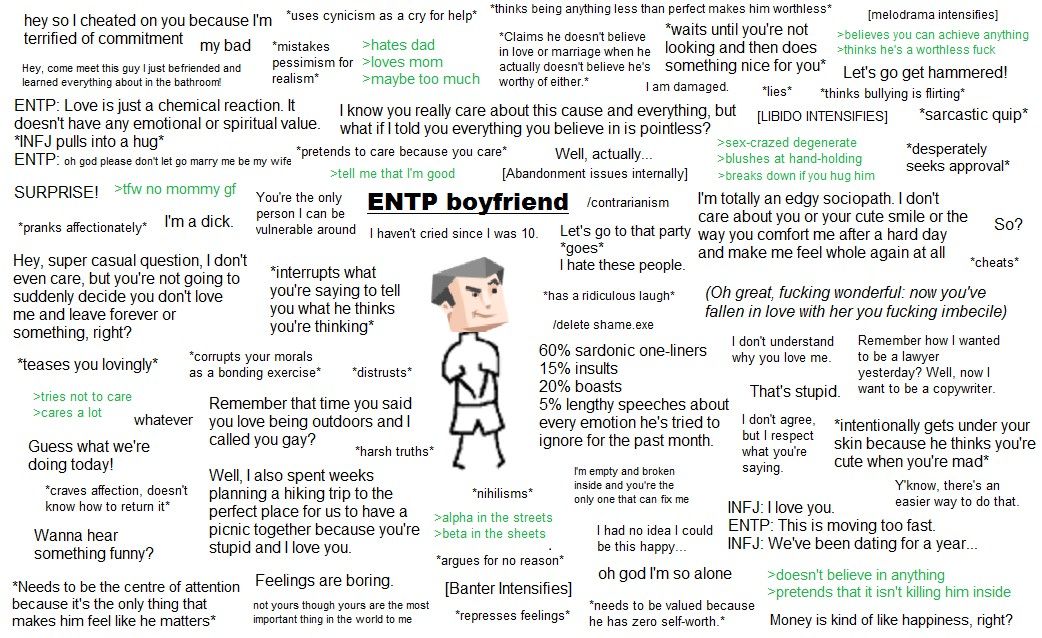 You’ll also drain yourself faster with the added effort.
You’ll also drain yourself faster with the added effort.
Don’t Overthink
Don’t overthink it. Don’t spend too much time analyzing conversations or worrying about saying the wrong thing. Nobody is ever as hard on you as you are. Focus on the moment and enjoy your time with friends.
Make Time For Your Friends
It’s essential to make time for your friends. Schedule time to catch up with them or invite them for a fun activity. But also be flexible and make yourself available if they need you.
Stay Connected
Keep in touch with them even when you’re not hanging out with each other. Whether sending a text, calling, or video chatting, staying connected with your friends will help you cultivate strong relationships.
Show You Care
Listen attentively when they’re talking. Ask follow-up questions to show you care about what they have to say.
Support them during tough times. Be there for them when they need you.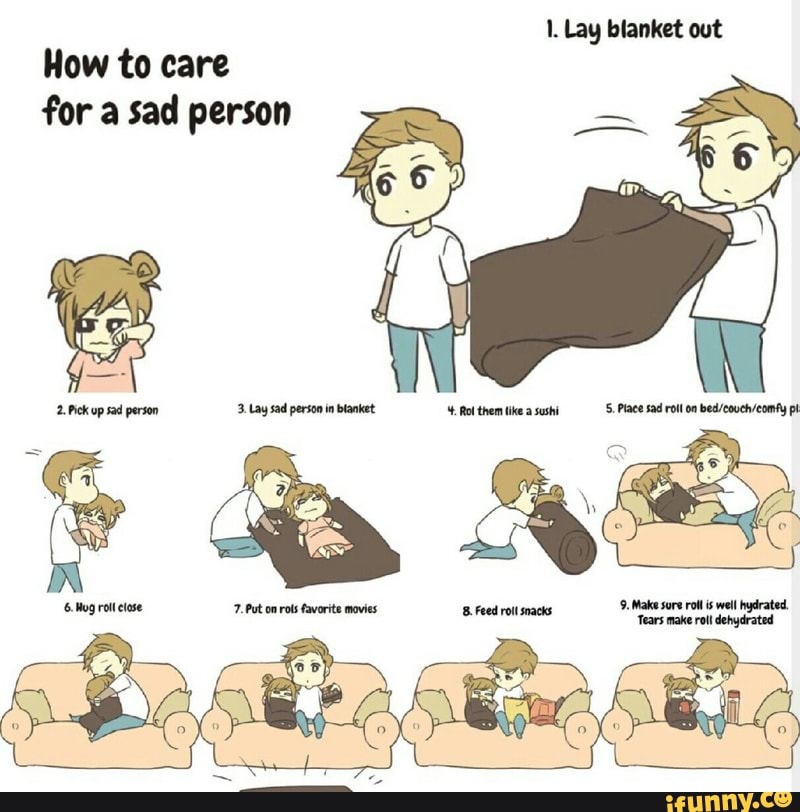 A very thoughtful way to show you care is to reach out on the anniversary of the death of a loved one. You don’t have to say much – you know it’s a tough day for them, so let them know you’re there for them if they need to talk.
A very thoughtful way to show you care is to reach out on the anniversary of the death of a loved one. You don’t have to say much – you know it’s a tough day for them, so let them know you’re there for them if they need to talk.
Also, help them celebrate their special occasions and any small wins they have! This shows that you’re paying attention to their life and care about what’s happening with them.
Express Gratitude
Every so often, let them know you appreciate them and that they are one of your reasons to be happy. It’s one of the simplest yet most meaningful things you can do.
Set Boundaries
It’s okay to say no to plans if you’re not up for it. You don’t have to do everything your friends want you to do. It’s okay to do your own thing sometimes. Spending time alone is necessary for introverts, so don’t feel guilty!
However, don’t always decline their invitations. If you do it too often, they may start feeling like you don’t want to spend time with them. Plan activities that you both enjoy so that you can have a great time without feeling drained afterward.
Plan activities that you both enjoy so that you can have a great time without feeling drained afterward.
Final Thoughts
Making friends as an introvert can be tough, but it’s doable and definitely worth it. With a little effort, you can build strong, lasting friendships! Remember to be yourself, make time for your friends, and show them you care. Don’t be afraid to say no if you need some time alone.
And, above all, practice patience. Making new friends takes time, but you’ll eventually get there. You’ll meet those who enrich your life and understand and accept you for who you are.
Staying in touch with your friends is integral to keeping them, but it can sometimes be challenging. There’s an app that can help with this!
With the Do Happy App, you can remember all the important dates and details about your friends that make them special to you. The app sends reminders of your friends’ birthdays and special occasions, so you reach out when it’s important.
The app sends reminders of your friends’ birthdays and special occasions, so you reach out when it’s important.
The app also has a rotating relationship maintenance task that encourages you to contact your friends and loved ones on a weekly rotating basis. This helps you keep in touch even when life gets busy.
You can also use the app to record happy moments with your friends, which you can look back on and cherish later.
In short, if you want to ensure you stay in touch with your friends, the Do Happy App is exactly what you need!
Download the Do Happy App and start building stronger friendships today!
How to Make Friends as an Introvert: 10 Tips
If you consider yourself an introvert, you probably feel pretty comfortable with your own company.
There may come a time, though, when you realize you’ve fallen somewhat out of touch with other people. Maybe you haven’t felt any loneliness yourself, but well-meaning family members keep suggesting you need a new friend or two.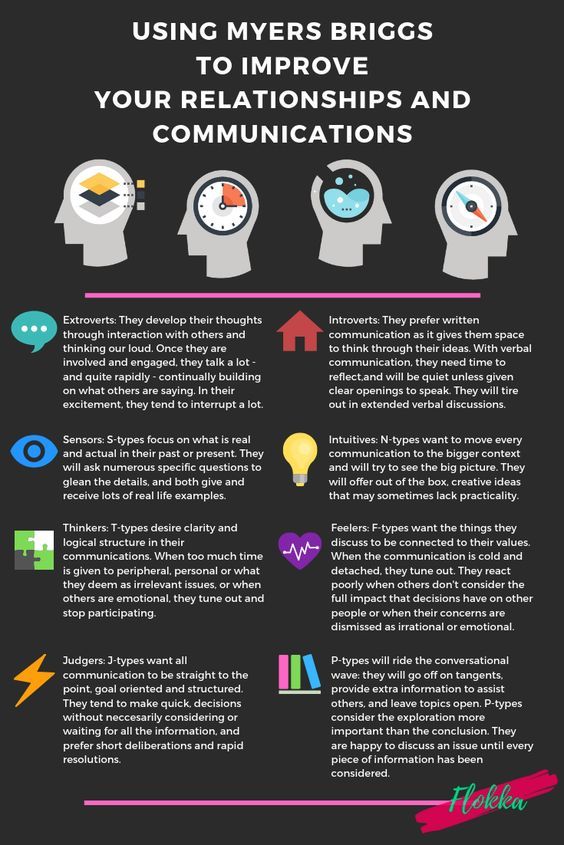
If you don’t have many — or any — close friends, you might wonder whether you do, in fact, spend too much time alone.
Even as you weigh the pros and cons of expanding your social circle, you may feel unsure where to start. Most people find that making friends as an adult is hard.
During the COVID-19 era, the new reality of remote friendships may seem doubly appealing: It offers a way to connect on your own terms while physical distancing. But finding friends remotely can prove challenging, too.
When you want a little change from solitude, try the 10 tips below to connect with meaning.
As you probably know, introversion simply refers to the way you get your energy. This trait doesn’t make you shy or mean you dislike people — both common misconceptions about introversion.
As a matter of fact, introverts tend to form strong relationships.
If you truly want to find more friends, it’s entirely possible to do so. But it’s important to make these connections for the right reasons.
Ask yourself whether you really want more friends or merely believe you should have them.
If you don’t actually feel the need to spend time among others, that’s just fine. Being alone doesn’t necessarily translate to loneliness, after all.
But perhaps some of the articles suggesting extroverted people are happier and better off kick-started your motivation to make friends.
One 2015 study, for example, gave a series of personality and trait assessments to 1,006 adults of varying ages and made a few key discoveries:
- Extroverts scored higher on measures of happiness, emotion regulation, and relationship quality.
- People who demonstrated good emotion regulation abilities or had strong relationships reported greater happiness.
- Introverts with stronger emotion regulation abilities and high-quality relationships reported greater happiness than introverts with lower scores in these areas.
Based on these results, study authors connected higher-quality social relationships and strong emotional regulation skills indirectly to greater happiness.
Keep in mind, though, that no one but you can determine what you need for your own happiness.
If you feel content with your life right now, going against your nature by forcing yourself to make friends you don’t particularly want could actually leave you unhappier.
As noted by the study mentioned above, high-quality relationships appear to offer the most benefits.
Say you have strong relationships with your family and one good friend. You get along with your co-workers but feel perfectly satisfied to say goodbye at the end of the day. You can make polite conversation as needed but feel no particular need to get to know most people you meet.
Some people might consider your life severely lacking in social connections — but they aren’t you.
Extroverts and some ambiverts might thrive on connecting with others and making small talk, but there’s no need to chat with everyone you meet.
Finding one good friend is often easier (and less draining) than building a crowd of superficial acquaintances you don’t have the time or energy to really get to know.
While some people might encourage you to “break out of your shell” or “expand your horizons,” you don’t always need to look to new interests to find new friends.
Seeking out people with similar interests in hobbies, activities, or schools of thought can be key to creating lasting bonds.
Introverted people often feel most drawn to activities usually done alone, including:
- reading
- journaling
- creating art
- watching movies
- hiking
Even though these activities are often thought of as solo hobbies, you can still find a community who shares your interests.
Perhaps you could:
- look into an online book club or review group
- explore movie clubs in your area or online
- look into local or virtual art classes
If you’re a student, school offers another great place to find friends. Why not make an effort to talk to that classmate who always makes insightful comments or mention how much you loved the book you noticed on their desk?
Branching out can have benefits, too.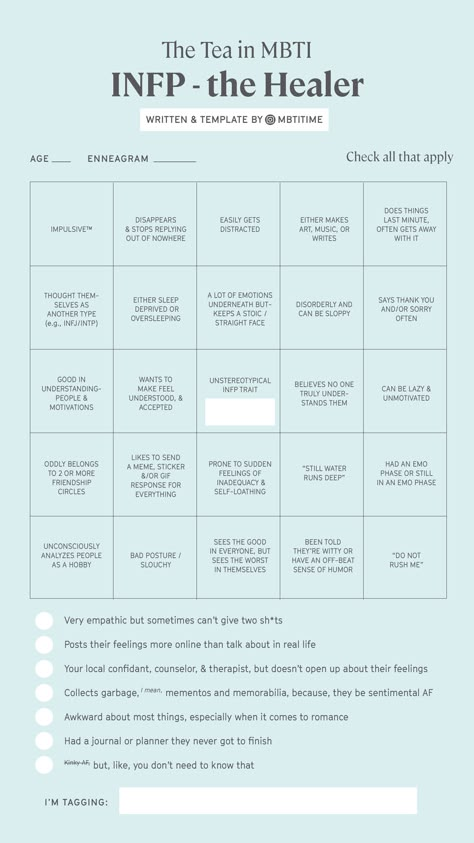 If your existing hobbies don’t provide many opportunities for connection, you might consider a new approach.
If your existing hobbies don’t provide many opportunities for connection, you might consider a new approach.
Challenge yourself to try one thing — it’s OK to start small — that has always interested you. Maybe it’s a stargazing evening, a dance class, a birdwatching tour, or a guided tour of a historical site.
Many people also find opportunities for connection while volunteering or participating in other community events.
You don’t have to talk with anyone the first time you go. But if you enjoy yourself, show up again and try connecting with someone you recognize.
You can also turn to the internet to make friends. You might join (or even create) a forum for something you’re passionate about or connect with people over social media.
Friend-finding features on dating apps also offer a convenient way to find potential friends in the time of COVID-19 and get acquainted remotely before hanging out in person when it’s safe to do so.
As you look for friends in new places, consider this: People often feel drawn to others with similar values and backgrounds, but it’s always a good idea to get to know people who are different from you, too.
Sticking to friendships with people who have mostly the same ideas can sometimes limit you and your view of the world.
You may not shine your brightest in group settings or lay your feelings down on the table for all to see, but you have other valuable things to offer.
Take some time to examine your own traits and acknowledge things you do well. Your strong points might rest in certain personality traits, behaviors, or skills.
For example:
- You’re a great listener.
- You take time to consider all angles of a challenge instead of impulsively rushing into action.
- You have a fierce commitment to privacy, and people know they can count on you to honor confidences.
- Sensitivity makes you a deeply compassionate person.
- Curiosity and imagination allow you to see things differently and offer new insight on difficult problems.
The important thing to realize is that everyone has different strengths. That’s a good thing — the world needs balance, after all.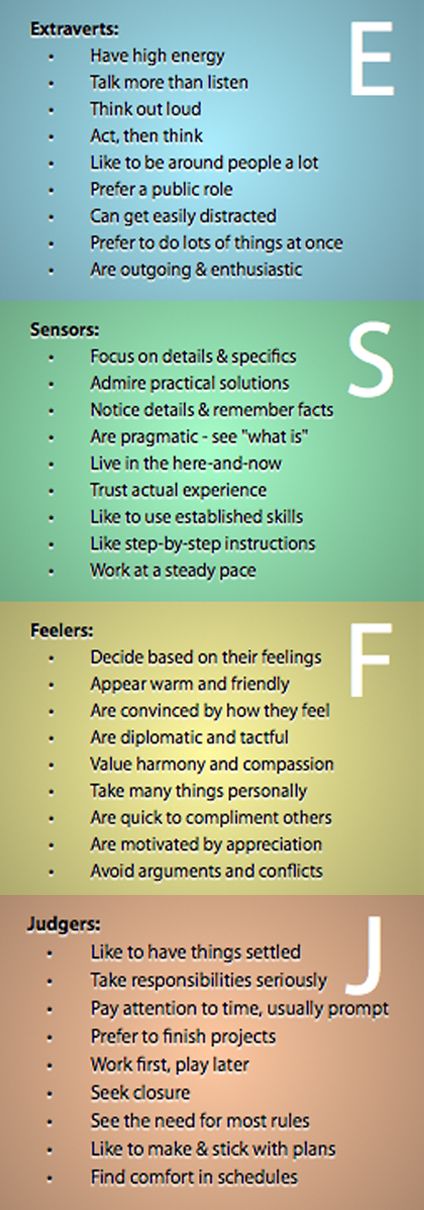
Your strengths might appeal to another introvert who recognizes a kindred spirit, but they could also complement the contrasting traits of a more extroverted person.
As you work on developing new relationships, try to keep in perspective just how much time and energy you actually have to give. Many introverted people do have several close friends, but the fact remains that introverts will always need time to recharge alone.
Friends fulfill important social and emotional needs, but interaction can still drain your resources.
If you try to make more friends than you have energy for, you might end up feeling guilty you don’t have enough time for everyone. This can add an entirely different kind of stress to your social life.
When you stretch yourself too thin, you’ll have less to give to the people you care about — which can decrease the quality of your existing relationships.
It’s wise to go forward cautiously as you explore the level of interaction that works best for you.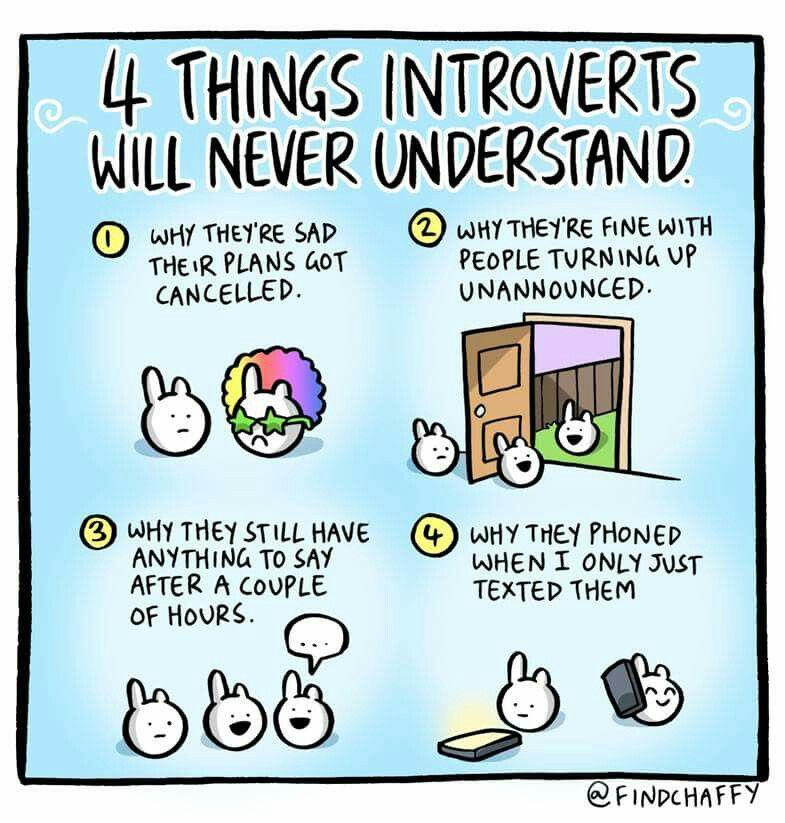 Setting limits around the time you spend with others can help you avoid burnout.
Setting limits around the time you spend with others can help you avoid burnout.
It never hurts to start seeking connections in the things you already do. This might be harder during the pandemic — but harder doesn’t mean impossible.
Getting to know someone generally starts with the simple act of listening to what they say. Many introverts do this already, so try to take it a step further and offer something in return.
Maybe a co-worker you regularly handle projects with has invited you to lunch a few times, or your neighbor always waves hello and asks if you’d like to have a cup of coffee.
You might instinctively avoid these interactions for fear of being put on the spot for small talk. By becoming better acquainted, though, you might find some room for common ground.
Perhaps you and your neighbor share the same gardening and television interests or you and your co-worker have pretty similar personalities.
Once a fledgling friendship begins to take off, keep it thriving by finding new ways to connect.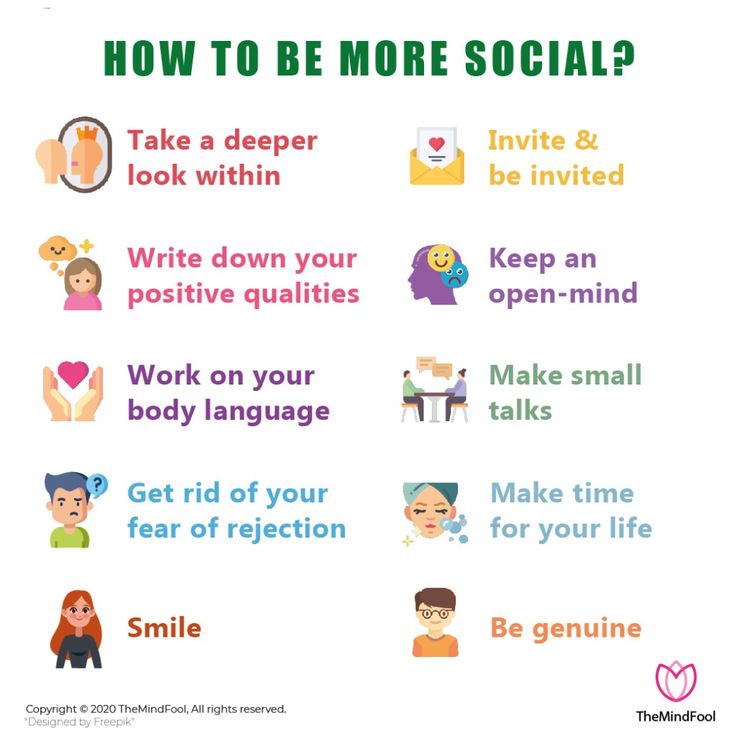 You might plan picnic lunches outside with your co-worker, for example, or accompany your neighbor to a gardening show.
You might plan picnic lunches outside with your co-worker, for example, or accompany your neighbor to a gardening show.
Making friends doesn’t mean you have to completely reinvent your true self. Putting up a pretense of extroversion might seem like the best way to “fake it until you make it,” but this could backfire.
Personality traits usually don’t change easily. And at the end of the day, you’re still the same person with the same needs for solitude.
That said, changing certain behaviors could offer some benefits, according to a 2020 study that asked 131 students to change their behavior for 2 weeks.
For 1 week, they adopted traits associated with extroversion: talkativeness, spontaneity, and assertiveness. For the other week, they demonstrated more quiet, reserved, and deliberate behavior.
Everyone, especially those who wanted to be more extroverted, showed improvements in well-being during the extroverted week. During the introverted week, their well-being went down.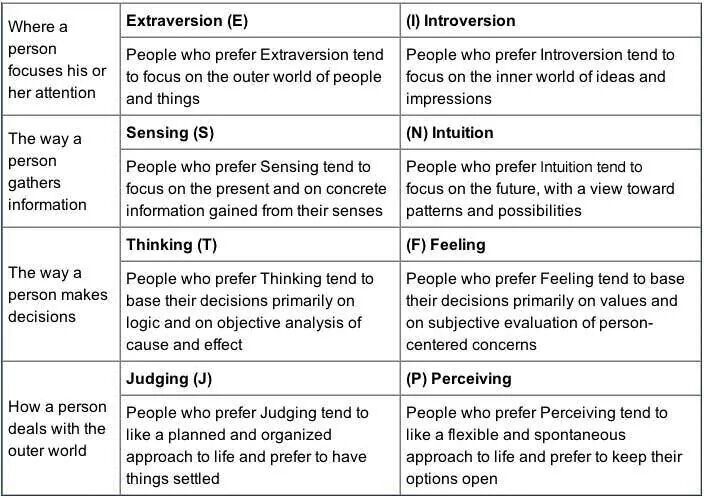
It would seem, then, that adapting your behavior could have a positive impact on your well-being. Study authors note, however, that the language used in the prompts could have primed participants to expect one outcome over the other.
But the power of suggestion isn’t always bad. If you expect improvements, you might unconsciously work harder to bring them about.
The study authors asked participants to come up with a list of five ways they might change their behavior. This method can work for you, too.
You might, for example, decide to:
- Speak to one new classmate after each class.
- Make small talk with a co-worker or other acquaintance.
- Accept a friend’s invitation to a party.
- Introduce yourself to someone in your walking group.
- Find one community or virtual event to participate in each month.
You’ll encounter plenty of different people in life, and you probably won’t click with every single one of them. That’s normal — expecting otherwise is unrealistic.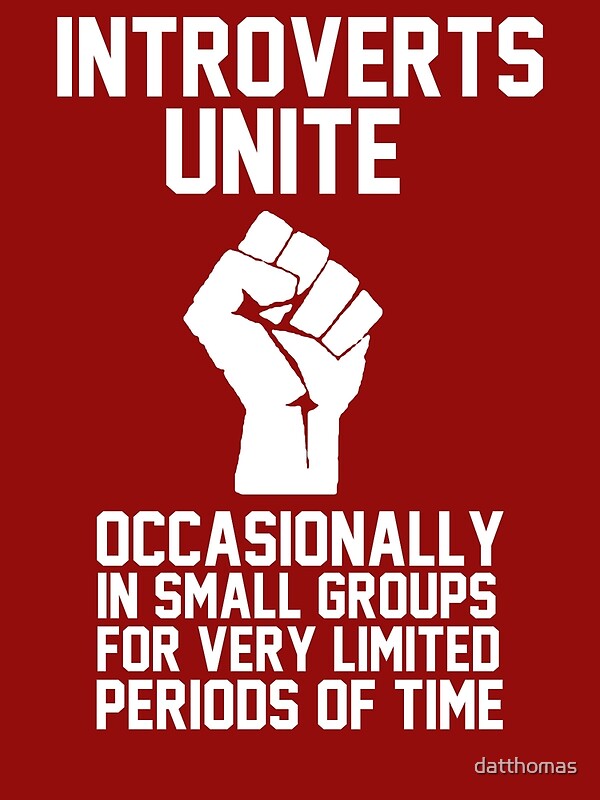
It can feel disheartening to accept that sometimes your efforts to socialize will go nowhere. Rejection never feels pleasant, and you might feel even more discouraged when interactions go nowhere after you really make an effort to engage.
Keep in mind, though, that the more chances you take, the more likely you are to succeed. True friendship does require effort, and success can take time.
When you meet someone you’d really like to spend more time with, show your interest by reaching out to make concrete plans and communicating your desire to stay in touch.
If you’ve tried a few times and they don’t seem receptive, move on to someone else. This process can feel daunting at first, but it generally gets a little easier (and feels more natural) with more practice.
If your best efforts to make new friends haven’t yielded much success, support from a therapist can make a difference.
People seek therapy for many different reasons, and you can get professional help for any challenge, not just mental health symptoms.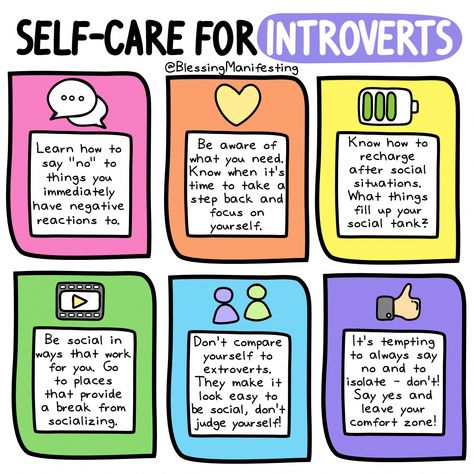
Therapists often help people deal with interpersonal issues, including difficulty socializing and developing new relationships. Some people even work with friendship coaches to explore new ways to relate to others.
When you want to make changes in your social life and struggle to do so, you might begin to notice a mental health impact.
Maybe your loneliness eventually leads to a low mood. You could also feel anxious when you’re under a lot of stress but have no one to share your feelings with.
Therapists can help address these concerns while also helping you uncover any patterns getting in your way of making new friends.
In therapy, you can also:
- Explore productive communication skills.
- Practice strategies for forming social connections.
- Get guidance on body language that conveys greater openness.
Introversion isn’t a flaw, and a lack of friends isn’t necessarily a bad thing.
If your small circle and quiet life make you feel content, you don’t need to push yourself into anything different.
When you do notice a lack of companionship, however, start by taking small steps to broaden your social horizons.
Crystal Raypole has previously worked as a writer and editor for GoodTherapy. Her fields of interest include Asian languages and literature, Japanese translation, cooking, natural sciences, sex positivity, and mental health. In particular, she’s committed to helping decrease stigma around mental health issues.
How to make friends with others if you are a modest introvert
April 29, 2022 Relationship
Advice from psychologists will help you achieve your goal and not suffer.
1. Be yourself
Introverts need solitude and should not refuse it. It's okay if you don't want to be around other people all the time. Therefore, before looking for new friends, ask yourself, do you really need it? Maybe you just think that you should have more acquaintances - like everyone else? Or maybe you have imposed this point of view?
But if you really want to expand your social circle, first determine what kind of people you want to see next to you.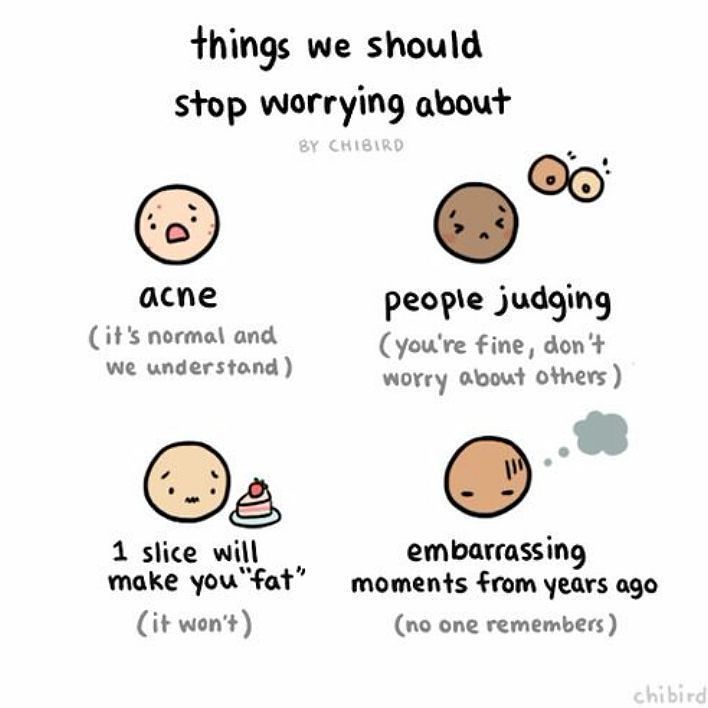 Usually the most comfortable is with those who share your interests and outlook on life.
Usually the most comfortable is with those who share your interests and outlook on life.
Therefore, you should focus on what fascinates you, find people with similar hobbies and let new acquaintances get to know themselves better, fall in love with who you really are.
2. Change not yourself, but your behavior
Personality traits are not easy to change, but you can sometimes try to behave differently. Psychologists have found that more extroverted behavior can have a positive effect on a person's well-being.
Try to have a quick word with a colleague in the office kitchen, accept an invitation to a party, leave a comment in a community on a social network. Track how you feel when you do unusual things. If you're uncomfortable, don't force yourself.
3. Don't be afraid that people won't like you right away
We often try to make a good first impression on people, we're afraid of disappointing them, and we think they might dislike us. But you don't have to worry about it. Experts from various US universities have proven that after meeting people like you much more than you think.
Experts from various US universities have proven that after meeting people like you much more than you think.
4. Say hello to people first
The advice may seem banal, but humble introverts are often embarrassed to say "hello" or look people in the eye. But it is these simple actions that show people that you are friendly. Therefore, do not be afraid to be the first to wave to someone and smile.
5. Use friendly body language
To gain self-confidence and improve interaction with people, try to show with your body that you are open to communication, advises Vanessa Van Edwards, writer, founder of The Science of People Lab, which studies human behavior.
Do not cross your arms over your chest as if in defense, keep your back straight. Smile and nod to encourage the other person and encourage them to continue the story.
6. Give yourself time
We only show ourselves as real when we feel comfortable with someone. But this takes time. And if you're uncomfortable with new friends at first, don't beat yourself up, says writer Jenn Granneman. The more time you spend with them, the more comfortable you will feel.
And if you're uncomfortable with new friends at first, don't beat yourself up, says writer Jenn Granneman. The more time you spend with them, the more comfortable you will feel.
7. Be interested in people, ask questions
When we meet new people, we have to talk about ourselves, and every introvert is afraid of this. But the conversation doesn't have to be about you.
Jenn Granneman
Author of the book The Secret Life of Introverts. The art of survival in the "loud" world of extroverts.
Introverts have a superpower: to listen. So get the other person talking by asking them questions.
People love to talk about themselves and what they think. Give them a chance and occasionally answer their questions.
8. Use your strengths
Other people may like your character traits, behaviors, skills. Use it.
Study yourself, find out what you are good at. For example, you can be a great listener, compassionate and empathetic person, and your friends can count on your support and ability to keep secrets.
Your unique qualities may appeal to another introvert who recognizes you as a kindred spirit, or may complement the opposite traits of an extrovert.
9. Don't be afraid to try new things
If your current hobbies don't help you expand your social circle, look for new hobbies. You can start with what you have always been interested in: signing up for a dance class or a tour of your hometown, volunteering or participating in social events.
You don't need to talk to anyone for the first time if you feel uncomfortable. But if you like it, you can keep going to events and keep in touch with someone you've already met there.
We are often drawn to people with similar values and experiences, but don't be afraid to meet people who are different from you. Communication with them will help expand your horizons or even change your outlook on the world.
10. Look at people you already know
You don't have to look for friends among strangers. The author of books about introverts, Sophia Dembling, suggests paying attention to others: one of them may turn out to be an interesting person with similar hobbies and outlooks on life.
The author of books about introverts, Sophia Dembling, suggests paying attention to others: one of them may turn out to be an interesting person with similar hobbies and outlooks on life.
Maybe your colleague loves the same music as you and would love to accompany you to a concert. Or he reads just as much and is willing to share his collection of interesting books. Or maybe your former classmate is actually an interesting girl with whom you can talk about everything in the world? Look at people!
11. Be a little more persistent
If you want to make friends with someone, don't be afraid to take a risk and take the first step, write, start a conversation.
Sofia Dembling
Author of books about introverts.
What seems intrusive to you may seem friendly to others. Our sensitivity can work for us or against us. Don't be so sensitive as to be afraid to take risks. Be empathetic enough to know if it's worth stepping aside.
And do not be afraid of awkwardness in communication if it arises at first. It does not characterize you or the other person in any way. It just happens at the beginning of a friendship.
It does not characterize you or the other person in any way. It just happens at the beginning of a friendship.
12. Don't chase the number
Psychologists believe that it doesn't really matter how many friends you have. What matters is how they suit you. Because the quality of relationships with people directly affects the feeling of happiness and satisfaction with life.
It may be enough for you to have a strong relationship with your family and one friend, get along with your colleagues and, if necessary, maintain a polite conversation. And if you're comfortable with that, fine. In the end, it's better to have one but a good friend than to gather a crowd of acquaintances for whom you have neither time nor energy.
13. Practice communication, but don't overdo it
To improve your ability to interact with other people, communicate with them. However, you do not need to be socially active all the time. Don't spend too much time with your friends if it causes you stress.
14. Dive into a friendship routine
Many introverts love routine, so don't be afraid to ask friends to meet once a week at a specific time. For example, to dine on Saturday at your favorite restaurant or take a walk in the park on Tuesday after work.
Jenn Granneman
Author of The Secret Life of Introverts. The art of survival in the "loud" world of extroverts.
When we know what to expect, we feel more comfortable and use less energy. In addition, this way you won't have to come up with something new and interesting every time you get together.
15. Don't be upset if the friendship doesn't work out
It also happens that some relationships just don't work out, and that's fine. Sophia Dembling says: when friendship fails, there are no losers. Therefore, give up self-flagellation and continue the search for your man.
Read also 🧐
- 25 things only introverts will understand
- How to be most productive if you are an introvert, extrovert or ambivert0111 How to lead a team if you are an introvert
how an introvert can make acquaintances and find friends - Personal experience on vc.
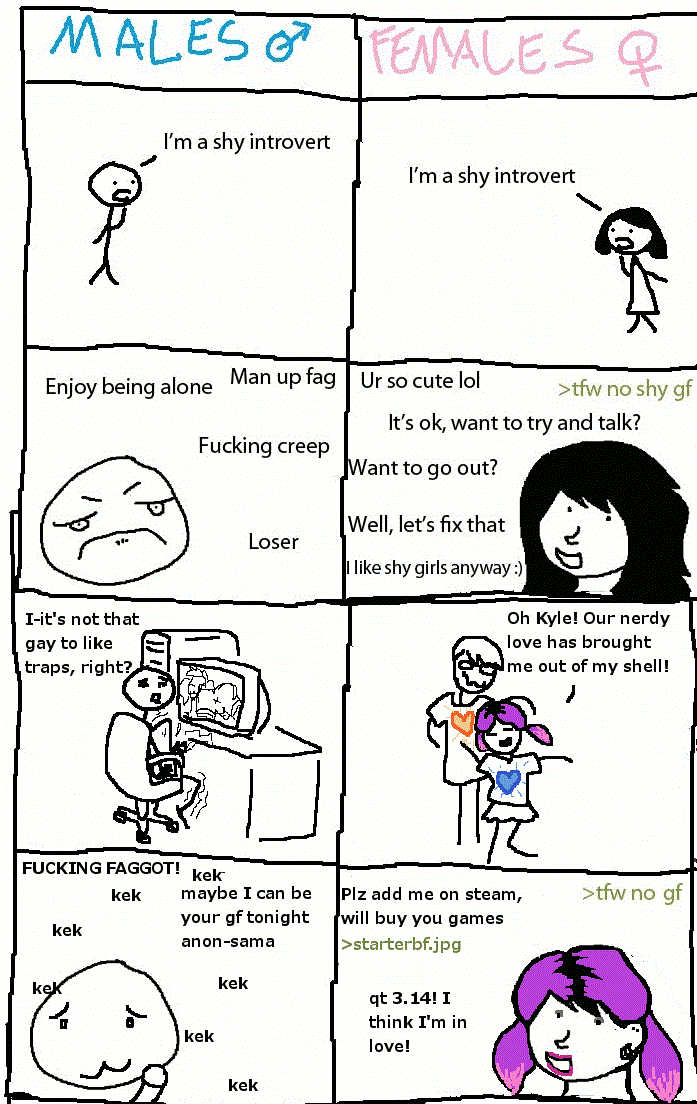 ru
ru A plate of fried potatoes, a juicy steak and a glass of wine. You can enjoy life and watch your favorite series until two in the morning. Living alone - what could be better? Eaten steak. Drinking wine. I make the bed, and for a moment it becomes chilly and lonely - again this acute feeling that life is wasted. Will I always be alone? The experience of the creator of the project "Vest".
308 803 views
I know that many people ask this question. They want freedom, but they get lonely, they want to find a mate, but they don’t grow together, they want love and tenderness, but in life there is only work and TV shows. Can this be changed?
Spoiler
I lived alone for seven years. Of course, I sometimes saw friends, parents and work colleagues, but there were few people in my life. The lack of communication became especially acute when I went freelancing and began working from home. It happened that for three days the only person with whom I exchanged words was a cashier in a supermarket, and these words were: “Hello. The package is not needed.
The package is not needed.
Much has changed since then. I made new friends and many acquaintances. I got married and we recently had a baby. In retrospect, I realize that I have gone through a great evolution from a social phobe who was scared of people to a person who enjoys being surrounded by people (although I also like to be alone). How did this metamorphosis take place?
Advantages of being alone
The desire to be alone does not arise from scratch. Loneliness has a lot of beauty in it.
The main advantage of loneliness is the freedom to manage your life without regard to others
Woke up from a thunderstorm at 3 am and wanted to walk barefoot in the rain? No problem. Decided to move to another city for a week? Gathered things and went. Want to lie on the couch and stare at the ceiling? Lie down and watch. Loneliness gives rise to a feeling of omnipotence: “I can do what I want! The world belongs to me!"
When you don't have to look at others, take into account their interests and habits, you begin to be much more attentive to your own needs, thoughts and feelings.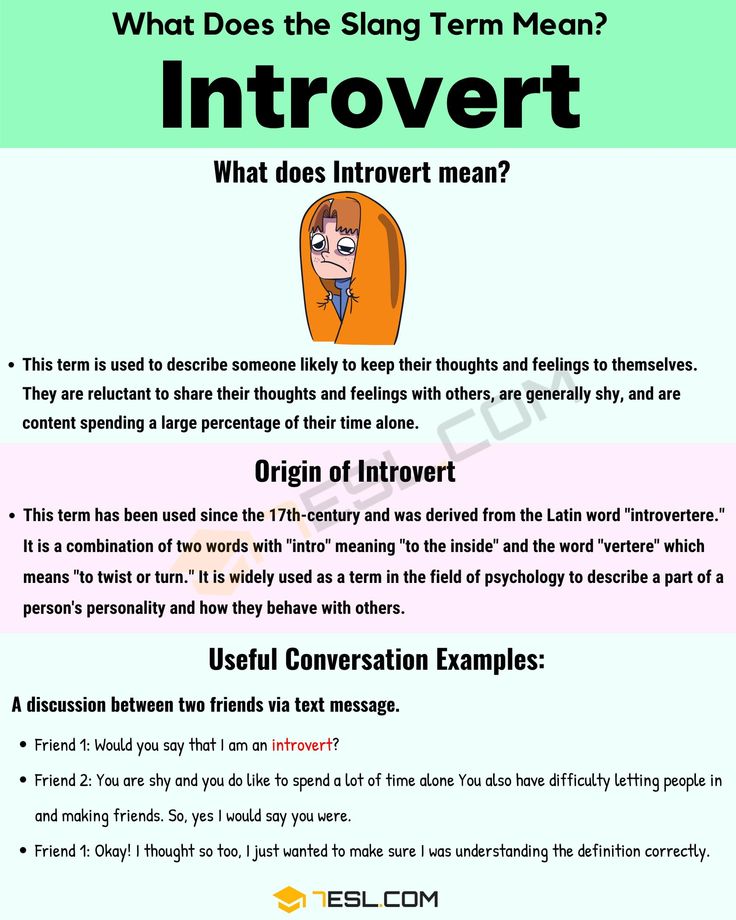 Questions from the series come by themselves: “What do I really want? What is important to me? Loneliness makes me realize what is interesting for me, to separate the values imposed by the environment from my own. This is first.
Questions from the series come by themselves: “What do I really want? What is important to me? Loneliness makes me realize what is interesting for me, to separate the values imposed by the environment from my own. This is first.
And secondly, loneliness protects against disappointment. Almost all problems in our life are problems related to people. People get hurt. One said something wrong, the second did not call, the fourth betrayed, the fifth was dumb as a cork, the sixth needed something from you all the time, and the third was always in the wrong place. Loneliness solves these problems at once.
No people - no problems :)
Thirdly, loneliness is romantic. Whoever you spit on, even in Eugene Onegin, even in Jack Sparrow, the main character is lonely, interesting and often misunderstood. A trifle, but nice.
They are beautiful and lonely :)
Cons of being alone
I felt them keenly when I met people. When I was called to a friendly company, I experienced real throwing. I knew that I would feel awkward if I went. And I knew that I would not forgive myself if I did not go, because I still really wanted to meet people. I enjoyed meeting my family friends, but when I left them, I felt very lonely - such a chilly, unpleasant feeling, like being caught in a sharp draft.
When I was called to a friendly company, I experienced real throwing. I knew that I would feel awkward if I went. And I knew that I would not forgive myself if I did not go, because I still really wanted to meet people. I enjoyed meeting my family friends, but when I left them, I felt very lonely - such a chilly, unpleasant feeling, like being caught in a sharp draft.
I felt uncomfortable with people because loneliness turned into a flaw. It seemed to me that everyone understood that something was wrong with me if I was alone. He walked down the street, collided with the eyes of the girls he met and averted his eyes. I saw couples in love and felt envy. It is difficult to describe this feeling of some kind of disproportion with others, otherness, as if it had emerged from the depths of the ocean as some kind of goggle-eyed monster, and everyone is looking at you with curiosity, but they are in no hurry to get to know each other.
Holidays. Sometimes they went great, but sometimes . .. I panicked when I realized that I had no plans, that all my affairs were redone, all my thoughts were changed, I didn’t want anything, and I would just kill time. I go to the store, buy delicious food and cook it intricately, watch a series, and then, you see, it’s evening, and it will be possible to write this day off.
.. I panicked when I realized that I had no plans, that all my affairs were redone, all my thoughts were changed, I didn’t want anything, and I would just kill time. I go to the store, buy delicious food and cook it intricately, watch a series, and then, you see, it’s evening, and it will be possible to write this day off.
An agonizing feeling that I am not living, but just waiting out life
A feeling that you can't hide behind the hustle and bustle of a healthy life...
Let's add to this the desire to meet "the one" and the realization that this will probably never happen.
Soul picture. Sorry, I don't know who the author is
Let's add that the lack of people also means the lack of popularity and professional demand outside the narrow circle, which knows that you are doing well. And it turns out that loneliness is such a pleasure. Why then was I alone?
What prevents you from making acquaintances?
Remembering myself in the “period of loneliness”, I am amazed at how many troubles I had.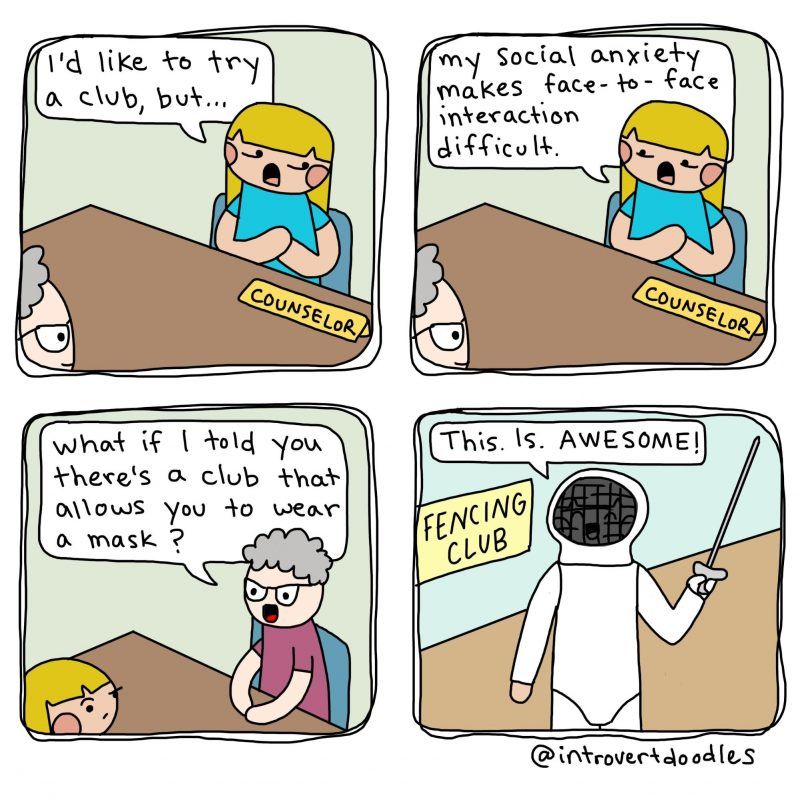 To people who have not experienced such difficulties, these troubles may seem like a whim, but from the inside they looked like an absolutely insurmountable obstacle.
To people who have not experienced such difficulties, these troubles may seem like a whim, but from the inside they looked like an absolutely insurmountable obstacle.
Firstly, I was tormented by the fear that I was not very interesting, I could not maintain a secular conversation, I had no idea how to answer the question: “How are you doing?” All this made it very difficult to get to know each other. And if you consider that because of my shyness they did not notice me, and the lack of mutual interest in itself caused suffering, a vicious circle turned out.
Secondly, in need of people, I tried my best to please them. I tried to adapt to their manner of communicating, smile more often, listen more. These efforts created a lot of tension and anxiety, I felt that I was losing my autonomy, that I was too involved in other people's affairs, that it was difficult for me to defend my interests. I felt comfortable being alone when I didn't have to pretend to be friendly and interested.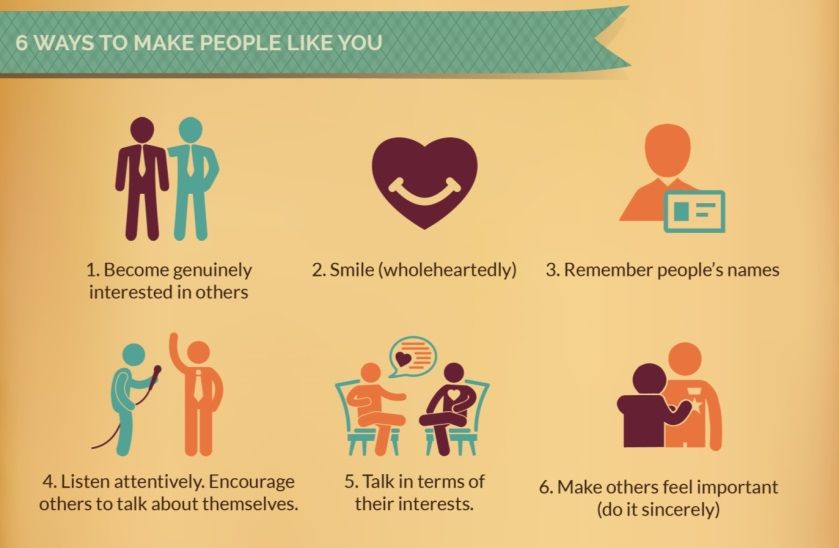
Thirdly, since communication gave me a lot of stress, it often turned out to be crooked: I joked not funny and felt stupid; I started to tell something, but they interrupted me, and I felt wounded; spoke too frankly - they laughed at me. Such “misfires” gave rise to a lot of shame, and shame is a feeling that is poorly tolerated. Therefore, I quickly concluded that something was wrong with my new acquaintances. They are boring, devoid of a sense of humor and tact, rude, and not seals at all!
Vasya Lozhkin knows a lot about cats
From all this, a reinforced concrete conclusion followed. Few people can understand me. This is only available to a select few who are almost impossible to find. And the girl that I am able to love (and who is able to love me), she is the only one on the whole planet, and hell you will meet her. And if you meet, you will immediately understand this: “Love jumped out in front of us, like a killer jumps out of the ground in an alley, and hit us both at once! This is how lightning strikes, this is how a Finnish knife strikes!
It's amazing how ridiculous notions of love can be :)
I think you now understand why I was alone for so long.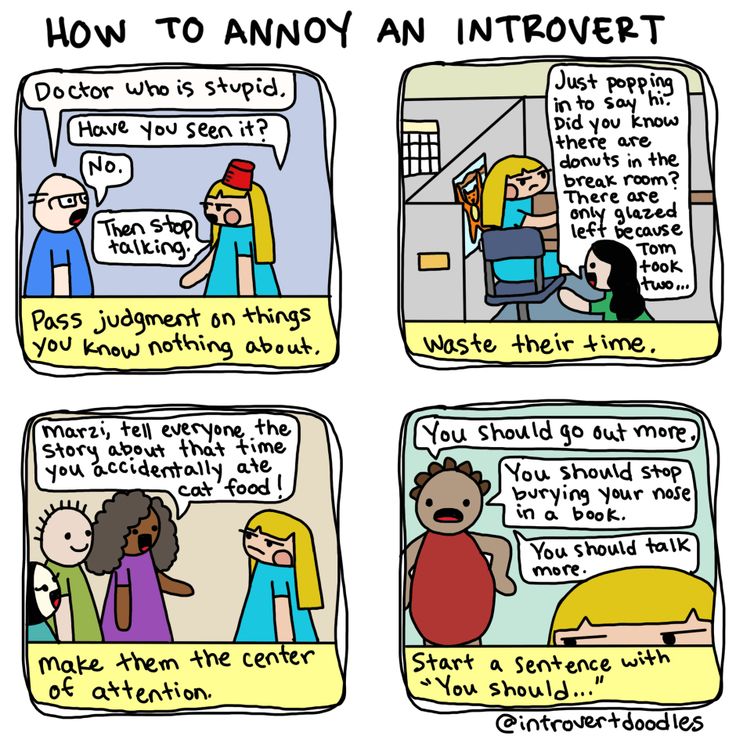
At the same time, I easily managed to build relationships with people at work and school. There one could take a closer look at a person, find a business (read, safe) reason for acquaintance and get to know him better. Sometimes these acquaintances grew into friendship, but even with friends I did not like to spend much time.
How things have changed
How did I manage to change my reclusive lifestyle? This was facilitated by a number of external circumstances that triggered internal changes that led to a change in external circumstances that stimulated internal changes that ...
The habit of being among people
It all started with the fact that I met a person with whom we decided to create a marketing agency, and in order to save on office costs, they began to work at my home. As a result, we spent the whole day together, plus we had to communicate a lot with clients and our team. After a period of seclusion, it was difficult, but gradually I got used to being among people. However, globally, nothing has changed in my worldview. I was still afraid of companies and believed that serious relationships did not shine for me.
However, globally, nothing has changed in my worldview. I was still afraid of companies and believed that serious relationships did not shine for me.
And people are not so scary...
The worldview began to change when I went to group therapy. Group therapy is a good trainer for shy people who live their fantasies about other people (here I wrote about it in detail). The main effect of group therapy is that you realize that all people are alike. Everyone has their troubles, difficulties, fears, everyone wants happiness, respect, recognition, love, everyone is trying to achieve this, albeit sometimes in very crooked ways.
The cool thing about group therapy is that it has taught me:
- to clarify what people think . This is important, because a huge pile of conflicts and a desire to stay away from everyone arise from fantasies that other people think nasty things about us.
- talk about your needs .
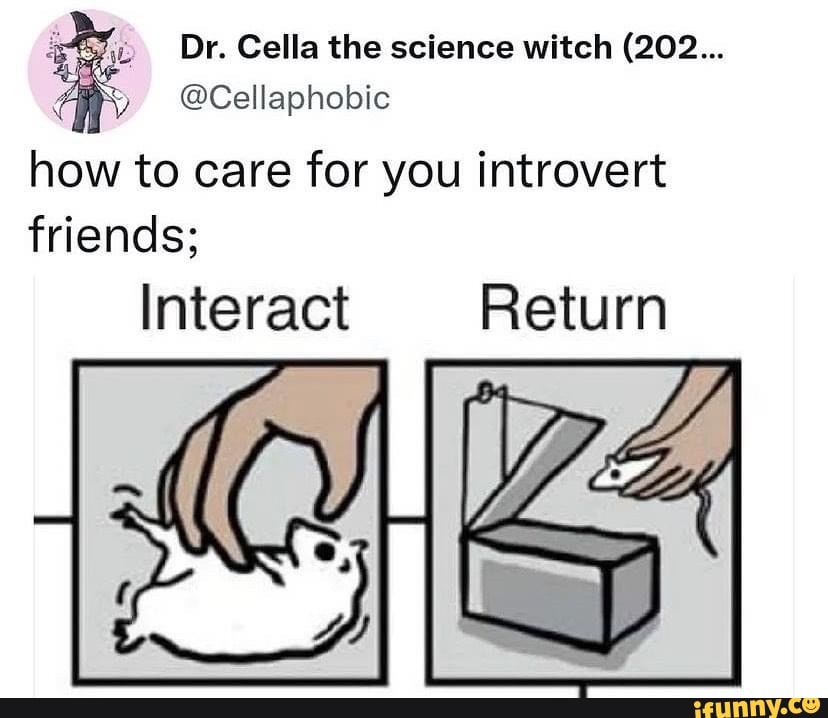 At the group, I learned, for example, to attract attention to myself: “Friends, give me time, I need to puff” and defend my interests: “Listen, I don’t need advice now, I want you to support me.” It helped to be in contact with people, not to ignore their own needs and to maintain autonomy.
At the group, I learned, for example, to attract attention to myself: “Friends, give me time, I need to puff” and defend my interests: “Listen, I don’t need advice now, I want you to support me.” It helped to be in contact with people, not to ignore their own needs and to maintain autonomy. - appreciate yourself more . The group members talked about what my personal qualities they like, for which they appreciate me. This feedback boosted my confidence and, as a result, I was much easier to withstand criticism. Now I no longer fell into shame if the communication went wrong: “Yes, I didn’t manage to make a funny joke, so what? Happens".
- treat yourself and others easier . When self-confidence appears, you no longer need to seek solace in fantasies of your imaginary superiority. How before? “Although my life is a complete mess and there is nothing to brag about, but in fact I am wow! It just hasn't shown itself yet.
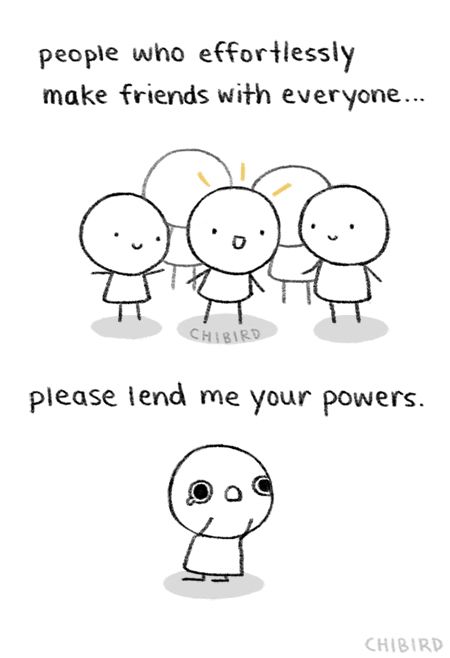 " At the same time, this allows you to see in other people just people with their own characteristics, nishtyaks and weaknesses, and not fantastic ideals or miserable nonentities.
" At the same time, this allows you to see in other people just people with their own characteristics, nishtyaks and weaknesses, and not fantastic ideals or miserable nonentities.
You may get the impression that the group is to blame for all my changes. This is not entirely true, the group allows you to recharge your confidence and try new behavior first in a safe situation on the group itself, and then transfer it to everyday life.
Love!
And then I really liked one girl, and I asked her out on a date. And if earlier it would hardly have gone well, because I would definitely wind up myself, fantasize that I don’t like it, and ruin everything, now everything went fine. The first date was followed by the second, and a year later we got married.
And now, comparing my feelings of loneliness and living together, I can say that it's much better together (and I say this not only because my wife reads me :)) It's hard to explain, but a loved one, as if complements, makes you complete and more harmonious.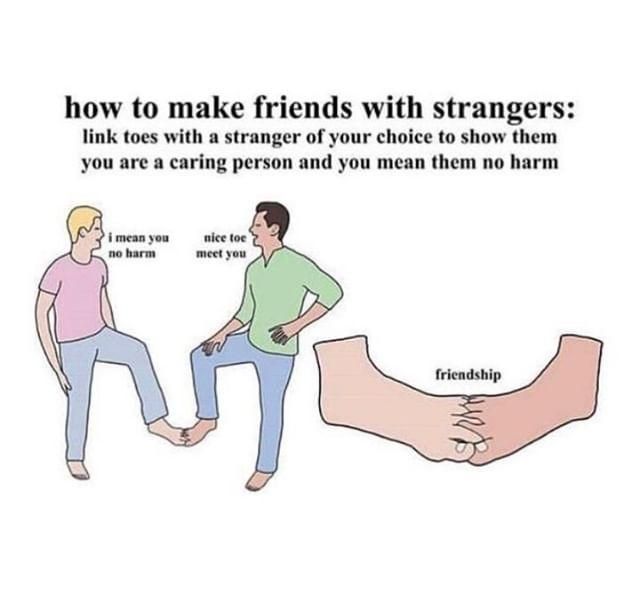
Present yourself to the world
Of course, against the background of everything else, this is a trifle, but I would like to note the training, which also launched interesting changes. The funny thing is that it was a training in ... vocals. And what about the vocals?
Tell me, can you afford to sing loudly? Most people need vodka and karaoke for this, otherwise it's strange and indecent. But in the same way, in our culture it is not customary to shine, attract attention, be noticeable, and in general - to be. In order for the voice to open up, you need to be liberated, and a fair part of the training was devoted to not holding back, straightening your shoulders and finding a voice.
The results were interesting. We yelled songs in chorus for three days, and the voice did not sit down, although for this I just need to talk loudly for a couple of hours (for example, give a lecture to a large audience). But even more curious is that immediately after the training I started a blog, where for the first time I dared to publish personal texts and exhibit my drawings.
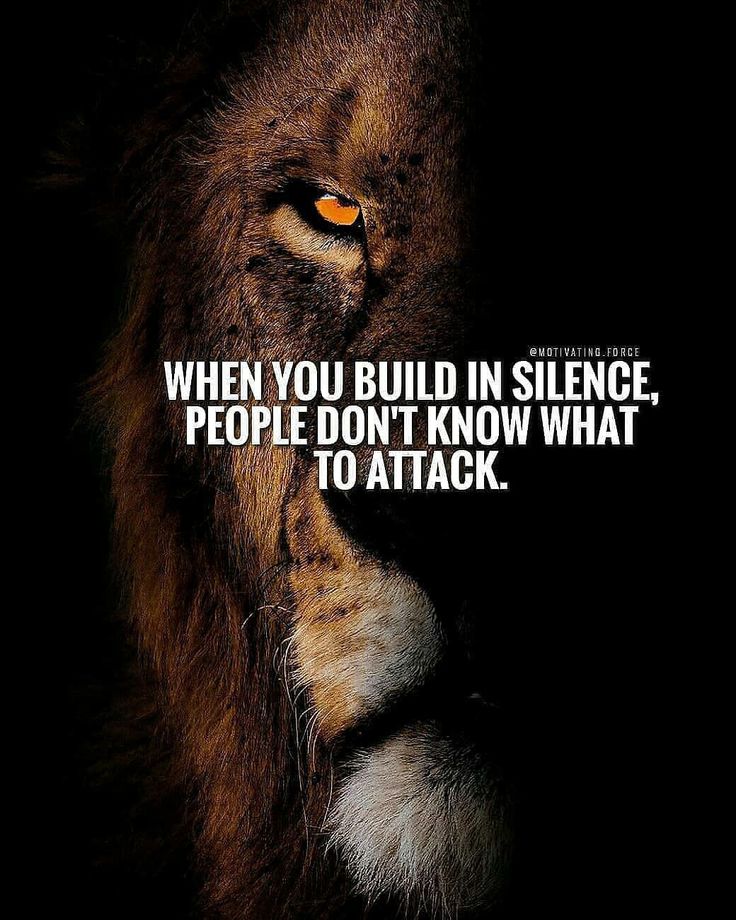



/nginx/o/2019/08/15/12467881t1he799.jpg)









